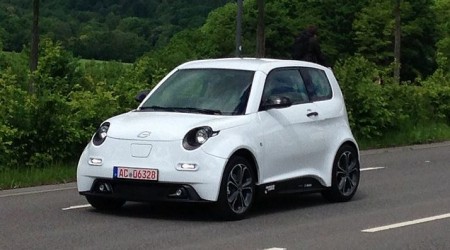There were 30 147 new passenger car registrations in Bulgaria in January to October 2023, an increase of 23.8 per cent compared with January to October 2022, the European Automobile Manufacturers Association, ACEA, said on November 21.
Of the new passenger car registrations in Bulgaria in the first 10 months of 2023, a total of 20 739 were petrol cars, 7149 diesel, 1423 battery-electric, 561 hybrid-electric, 274 plug-in hybrid and one “other” (a category that includes fuel cell electric vehicles, natural gas vehicles, LPG, E85/ethanol, and other fuels).
In October 2023, there were 2781 new passenger car registrations in Bulgaria, an increase of 16.7 per cent compared with October 2022.
ACEA said that in October 2023, the EU car market expanded significantly, with new registrations surging by 14.6 per cent to 855 484 units. This marked the 15th consecutive month of growth, with notable double-digit percentage increases in three of the largest markets: France (+21.9 per cent), Italy (+20 per cent), and Spain (+18.1 per cent).
However, the German car market reported a more modest year-on-year increase of 4.9 per cent. Ten months into 2023, new car registrations were up by 16.7 per cent, totalling almost nine million units. All markets grew during this 10-month period except for Hungary. Notably, the four largest markets: Italy (+20.4 per cent), Spain (+18.5 per cent), France (+16.5 per cent), and Germany (+13.5 per cent) contributed to this positive trend.
In October, the market share of battery-electric cars in the EU rose to 14.2 per cent, up from 12 per cent in the same month last year. The year-to-date share now stands at 14 per cent, surpassing diesel’s cumulative share for the first time. Hybrid-electric cars secured second spot with nearly 29 per cent market share, while petrol cars maintained their lead, albeit decreasing to 33.4 per cent in October.
In October 2023, EU registrations of battery-electric cars increased significantly, growing by 36.3 per cent to reach 121 808 units. Several markets contributed to this expansion with triple-digit percentage increases, particularly Belgium (+147.3 per cent) and Denmark (+100.7 per cent).
Following a slowdown in September, Germany – the largest market for battery-electric cars – grew modestly (+4.3 per cent) in October. This brings the year-to-date volume to 1.2 million units, marking a noteworthy 53.1 per cent gain compared to last year and capturing a 14 per cent share of the EU car market over the 10-month period.
New EU registrations of hybrid-electric cars surged by 38.6 per cent in October, propelled by substantial growth in the region’s top three markets: Germany (+57.9 per cent), France (+40.1 per cent), and Italy (+28 per cent). This contributed to a cumulative increase of 29.8 per cent, totalling 2.2 million units sold in the first ten months, representing over a quarter of the market.
Plug-in hybrid electric car sales dropped by five per cent year on year to 72 002 units last month. In spite of notable increases in Belgium (+70.2 per cent) and France (+34.2 per cent), this was insufficient to offset Germany’s decline (-49 per cent), the largest market for this power source. As a result, the market share of plug-in hybrid cars decreased from 10.2 per cent to 8.4 per cent in October.
In October 2023, the EU petrol car market grew by 8.1 per cent, although its market share contracted from 35.4 per cent to 33.4 per cent compared to the same period last year. The significant surge in sales across key bloc markets, including Italy (+21 per cent), France (+17.4 per cent), Spain (+7.7 per cent), and Germany (+7.5 per cent), contributed to this increase.
On the other hand, the EU’s diesel car market continued its decline in October, decreasing by 13.2 per cent. This decline was evident in most of the bloc’s markets, including the four largest: France (-29.4 per cent), Spain (-20.2 per cent), Germany (-4.6 per cent), and Italy (-3.7 per cent). Diesel cars now have a market share of 12 per cent, down from 15.9 per cent in October last year, ACEA said.
